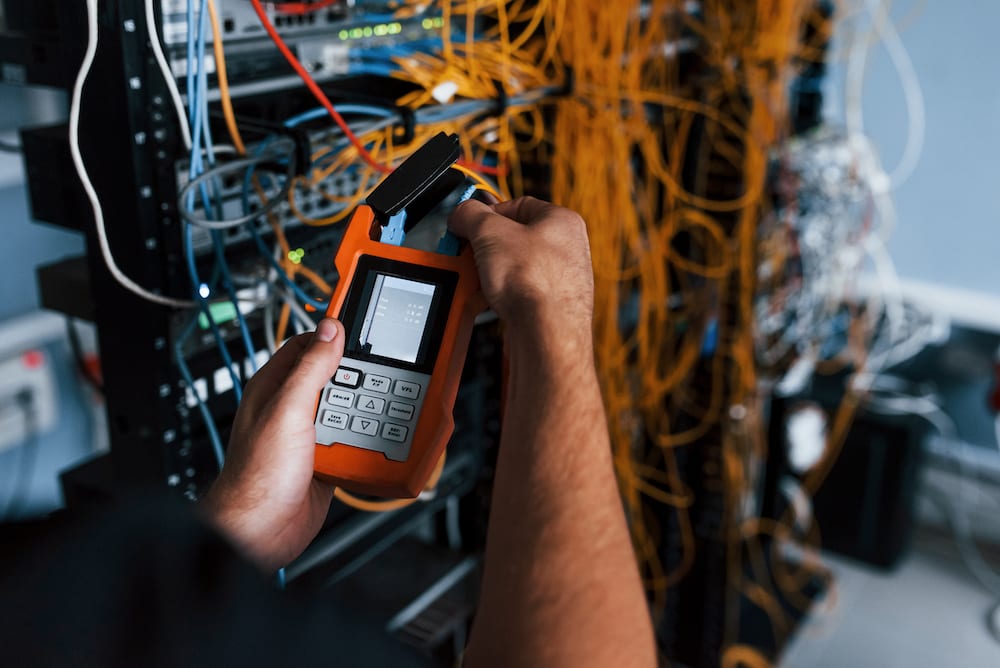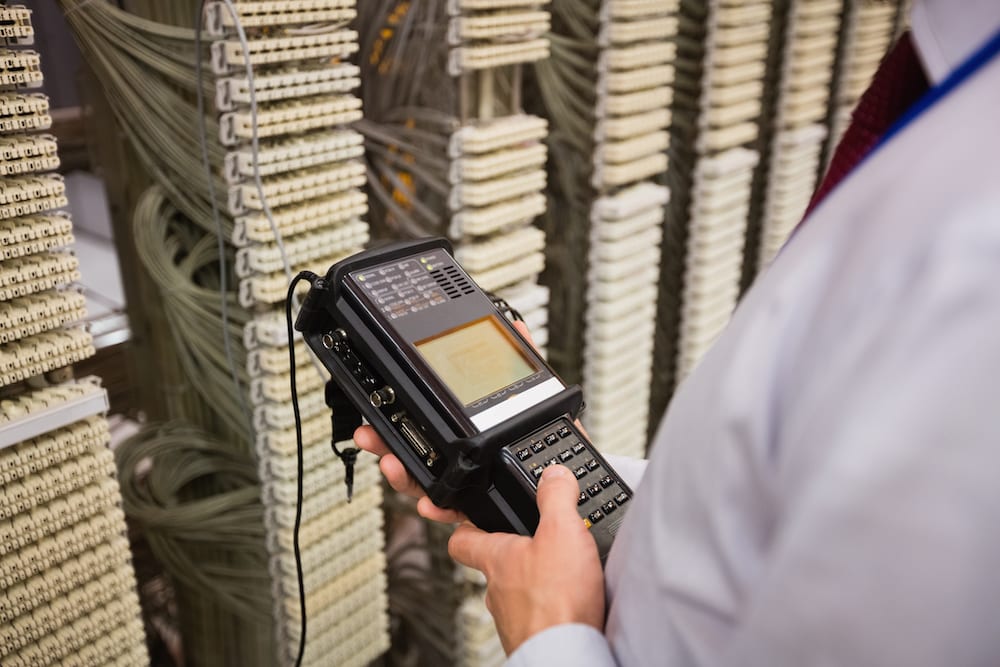- Published 8 Mar 2024
- Last Modified 8 Mar 2024
- 5 min
7 Essential Factors for Selecting the Best Network Testers
Explore essential factors for choosing network testers to ensure robust, efficient network infrastructure and connectivity for businesses across Australia.

In today's digital age, the success of businesses in Australia hinges on a robust network infrastructure, with network testers playing a crucial role in establishing and maintaining these vital connections. From tech startups in Melbourne to mining operations in Perth, network testers ensure operational continuity and connectivity across diverse industries. This blog will explore the role of network testers and the essential factors IT professionals and companies must consider to select the best one necessary for seamless network connectivity.

Understanding Network Testers
Network testers are indispensable in the IT toolkit and crucial for evaluating network connection health across industries in Australia. They examine everything from cable integrity to data quality, which is essential for resolving connectivity issues and ensuring uninterrupted business operations. For instance, sectors like finance rely on network testers for cyber security and efficient data transactions, mirroring their importance in mining for real-time operational communication. This foundational role of network testers is pivotal, highlighting their necessity in maintaining seamless network connections, which is vital for the success of diverse Australian industries.
Factors to Consider
1. Compatibility with Cable Types
Choosing network testers requires ensuring they align with various cable types crucial to network infrastructure, such as Cat5 cable, Cat5e cable, Cat6 cable, RJ45 cable, and coaxial cable. This variety supports distinct data speeds, bandwidths, and connectivity needs, making compatibility essential for accurate network evaluation. This is vital for diagnosing and troubleshooting across different settings, ensuring testers can effectively assess the broad spectrum of network configurations encountered in diverse environments.
2. Testing Methods and Accuracy
Considering the accuracy of testing methods like continuity and resistance measurements is crucial when selecting network testers. These methods play a key role in early issue detection, ensuring network reliability. Accurate continuity tests confirm cable integrity, while resistance tests verify correct electrical levels, both essential for network stability. This precision is vital in preventing disruptions and maintaining efficient network operations, making it a significant factor in the choice of network testing equipment.
3. Application and Environment
Selecting the right network tester involves considering its application and environment adaptability. These tools are essential across various tasks, from securing networks to supporting system upgrades and routine maintenance. Their ability to function in diverse industry-specific scenarios underscores the need for a device that meets the unique demands of your operational setting. Whether for vulnerability assessment, performance verification of new installations, infrastructure expansion, or preventive checks, choosing a tester that matches your industry's scale and complexity is critical, ensuring optimal network management and problem resolution.
4. Features and Functionality
Prioritising advanced features like signal quality measurement, error detection, and data logging is also necessary. These features enhance network performance and troubleshooting efficiency. Signal quality measurement verifies network capacity for high bandwidth and low latency applications. Error detection quickly pinpoints network faults, reducing downtime. Data logging tracks performance history, aiding in identifying intermittent issues. Such comprehensive functionalities facilitate detailed network analysis, which is crucial for promptly resolving issues and maintaining network connection stability.
5. Durability and Portability
Considering durability and portability are key for fieldwork and diverse environments. The tester's resilience to travel and physical impacts ensures reliability and longevity. Additionally, evaluating weight, size, and ease of transport is crucial for conducting tests seamlessly across locations. Opting for a sturdy and mobile tester ensures it meets real-world demands, maintaining accurate and effective diagnostics and maintenance across various operational conditions. This balance is crucial for the practical application of network testers in ensuring network health.
6. Budget Considerations
Balancing cost with functionality is an important aspect. Beyond the initial purchase price, think of the long-term value and ROI high-quality testers provide. Although more expensive upfront, they often lead to savings by reducing downtime and maintenance costs. Their reliability and precise diagnostics minimise the need for frequent replacements or repairs. Weighing these long-term benefits against initial costs is crucial; investing in quality ensures network integrity, minimises disruptions, and boosts productivity, offering significant returns on investment.
7. Future-Proofing and Scalability
For future-proofing and scalability in network testers, choose devices that adapt to evolving technologies and expanding business requirements. Selecting testers that accommodate future advancements ensures lasting relevance and efficiency, eliminating frequent upgrades. This approach aligns with both current needs and future growth, making it a sustainable investment in network infrastructure.
Making the Right Choice in Network Testing

Choosing the appropriate network tester is a multifaceted decision that significantly impacts business operations. By considering the factors outlined, businesses can ensure their network infrastructure remains robust, efficient, and prepared for future challenges. For a wide selection of network testers that meet these essential criteria, consider RS AU, your partner in maintaining seamless network connectivity for your business. We also provide resources ranging from troubleshooting relays and signal conditioning equipment to comprehensive industrial electrical safety guides designed to support your technical needs and enhance workplace safety.
Popular Network Tester Brands
Fluke Networks
Fluke Networks stands at the forefront of network testing tools and is renowned for its reliability and comprehensive solutions. They cater to a wide range of industry needs with their advanced network testers, ensuring precision and efficiency in network diagnostics and maintenance.
TREND Networks
TREND Networks is recognised for its innovative approach to network testing, providing tools that simplify complex tasks. Their products are designed to meet the dynamic demands of the industry, offering network testers that enhance productivity and accuracy.
Related links
- 7 Factors to Consider When Choosing a Supplier for Grommets
- Three Key Factors for Choosing the Right Ammeter
- Network Testers
- 7 Factors to Consider When Choosing Air Quality Monitors
- RS PRO 2670 Network Tester F RJ45
- RS PRO Cable Tester Cat 5e Cat 6a LAN UTP
- Fluke Networks MICROSCANNER 2 Cable Tester Coaxial RJ45
- Solar Panel Wiring in Australia: Types & Factors to Consider